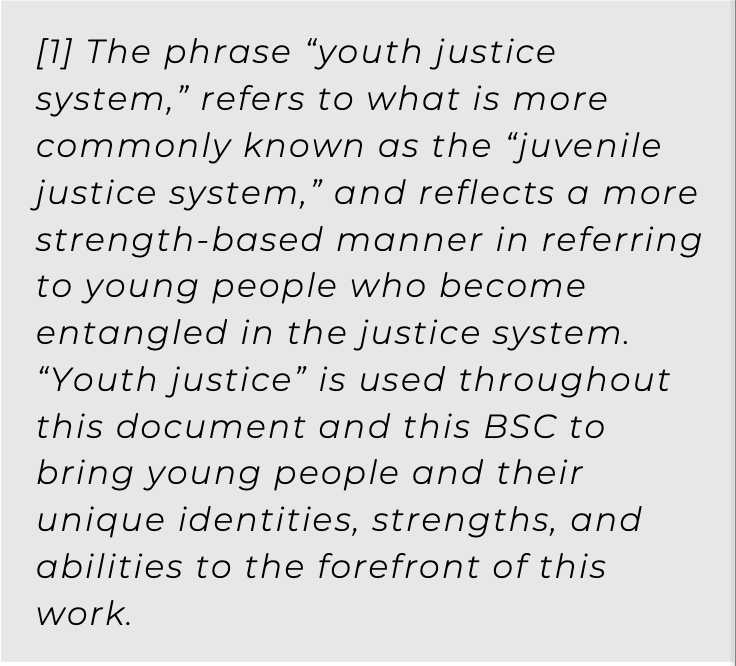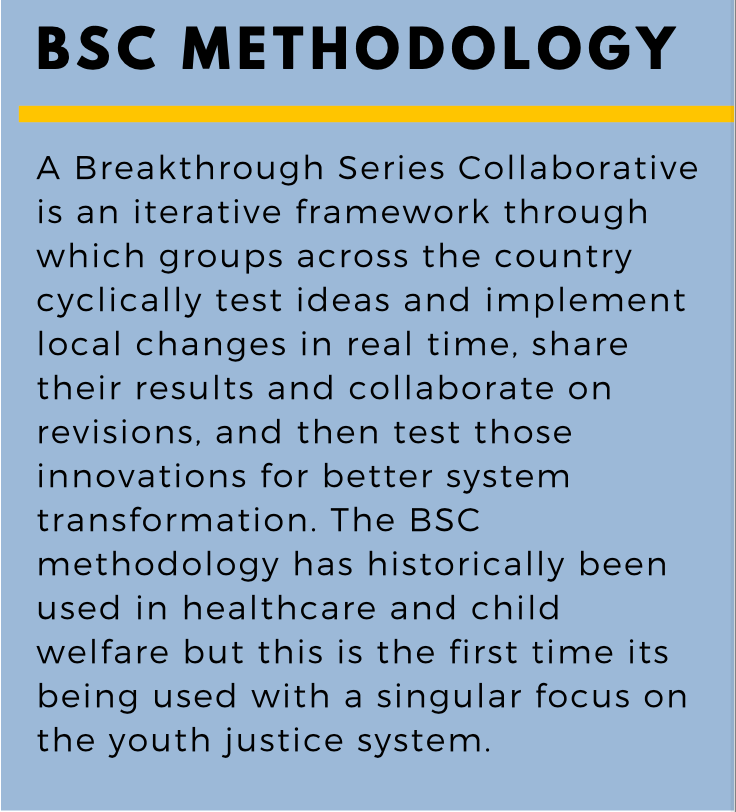Breakthrough Series Collaborative

It is an unfortunate and unacceptable reality that youth across the U.S. experience the justice system differently based on their race and ethnicity. Data indicate that youth of color are disproportionately represented at every stage of the youth justice system1 compared to their white counterparts, including at arrest, detention, charging and sentencing. Research also shows that youth of color are consistently treated more harshly than white youth even when charged with the same offenses.
Given the justice system’s roots, including America’s history of slavery and marginalization of communities of color, it should not come as a surprise that the system as currently constructed continues to fall short of effectively and fairly serving youth and families of color. Racial bias and structural racism continue to plague the system. Jurisdictions have not fully invested in and partnered with communities to support youth and families. And youth and families of color continue to be viewed and treated in a deficit-based manner, as opposed to remarkable individuals with great abilities and strengths.

It is time for a change.
In order to promote an equitable, anti-racist, and effective justice system for all youth and families, the Center for Juvenile Justice Reform (CJJR) at Georgetown University’s McCourt School of Public Policy, in partnership with the Center for Children’s Law and Policy (CCLP), is leading this Breakthrough Series Collaborative (BSC). This effort seeks to identify strategies for reducing and eliminating racial, ethnic, and socioeconomic disparities faced by youth of color involved with the youth justice system and improve outcomes for youth, families, and communities. Working together, stakeholders from up to eight jurisdictions will work to transform their youth justice systems by charting pathways and processes that lead to youth justice involvement; identifying key decision points that create disparities; and developing and testing practices and processes that advance community-based services and supports, including alternatives to system involvement.












